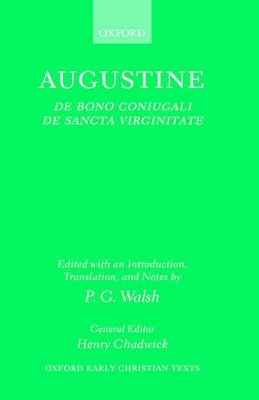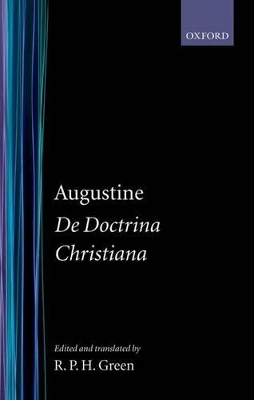Oxford Early Christian Texts
2 total works
De bono coniugali and De sancta virginitate were written in the same year (AD 401). In them Augustine rebuffs the Manichees, who argued that marriage was evil, and the fellowers of Jovinian, who argued that the married state was as meritorious as that of virginity. The first work analyses why marriage is good, and the second why virginity is a higher good. Both are closely related to present-day controversies amongst theologians and social
historians.
These two treatises have been neglected until recently, but lately there has been an outpouring of books and articles on the role of women in the societies of Rome and early Christianity. Moreover, Augustine has received and is continuing to receive enhanced attention in the English-speaking world. No new edition of these works has been published since 1900, and there is no contemporary English translation in print. This new translation and edition of the text will be of value both to readers
who wish to consult the original Latin, and to those interested in the social history of early Christianity, and in the intellectual development of Augustine in his early years as bishop of Hippo.
historians.
These two treatises have been neglected until recently, but lately there has been an outpouring of books and articles on the role of women in the societies of Rome and early Christianity. Moreover, Augustine has received and is continuing to receive enhanced attention in the English-speaking world. No new edition of these works has been published since 1900, and there is no contemporary English translation in print. This new translation and edition of the text will be of value both to readers
who wish to consult the original Latin, and to those interested in the social history of early Christianity, and in the intellectual development of Augustine in his early years as bishop of Hippo.
The De Doctrina Christiana ("On Christian Teaching") is one of Augustine's most important works on the classical tradition. Undertaken at the same time as the Confessions, is sheds light on the development of Augustine's thought, especially in the areas of ethics, hermeneutics, and sign-theory. What is most interesting, however, is its careful attempt to indicate precisely what elements of a classical education are valuable for a Christian, and
how the precepts of Ciceronian rhetoric may be used to communicate Christian truth.
An up-to-date translation has long been necessary, for readers of Augustine and all who study the early church, or the classical tradition, or the history of literary criticism or Biblical interpretation. This completely new translation gives a close but stylish representation of Augustine's thought and expression. A succinct introduction and select bibliography embodies the results of recent work.
how the precepts of Ciceronian rhetoric may be used to communicate Christian truth.
An up-to-date translation has long been necessary, for readers of Augustine and all who study the early church, or the classical tradition, or the history of literary criticism or Biblical interpretation. This completely new translation gives a close but stylish representation of Augustine's thought and expression. A succinct introduction and select bibliography embodies the results of recent work.

